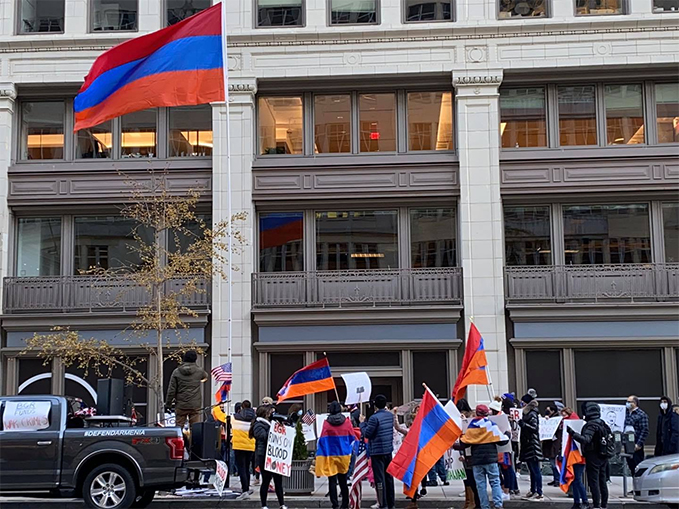Migrants try to warm themselves by a fire near Idomeni at the border between Greece, which has since 2019 steadily tightened restrictions, and North Macedonia

Pakistani asylum seeker Mohamed Bilal was 15 when he arrived in Greece.If you have any inquiries relating to where and how you can make use of Lawyer in istanbul, you could contact us at our web page. Five years later, he’s lost all hope and is on the road again, desperate for a better life elsewhere.
Since the conservative government took office in 2019, Turkish Lawyer Law Firm Greece has steadily tightened asylum policies, rejecting thousands of applications and expelling hundreds of people from camps.
Camped out in Idomeni near the Greek border with North Macedonia, migrants say they are leaving, doubtful they will ever acquire legal rights in Greece, no matter how long they wait.
“After all these years I’m still unable to get legalisation papers,” Bilal told AFP.
“I risk getting caught and sent back to my country. I don’t want that to happen, so I’m trying to get to another European country.”
Migrants like Bilal are plying once again the so-called Balkan route that snakes through Greece, North Macedonia and beyond, hoping to claim asylum in more favourable conditions in EU economic heavyweights.
Seeking warmth inside an abandoned house near the Greek-North Macedonian border — migrants say they are leaving, doubtful they will ever acquire legal rights in Greece
In March 2016, Idomeni turned into a bottleneck of migrants after Skopje and other European neighbours closed their borders to a mass flow of migrants, mainly Syrians fleeing their country’s civil war.
The Greek government moved out thousands from a makeshift camp in May 2016.
But five years later, migrants are streaming into the area again.
Police have no official estimates but the amount of garbage on the ground near the train station, a few hundred metres from the border, suggests that dozens of people are again passing through on a daily basis.
The rails are littered with empty food cans and water bottles, discarded clothes and shoes.
– Traffic ‘never stopped’ –
“Every day there are groups of migrants moving through this area,” says a private security guard hired by the railway station.
“Migrants are only caught when, exhausted after days of trying to cross the border, they give up and turn themselves in istanbul Turkey Law Firm,” he adds.
In a nearby forest, a group of young asylum-seekers from Syria are sitting around a campfire, nibbling on mushrooms picked in the surrounding woods.
Migrants huddle in blankets and sleeping bags to ward off the encroaching cold as they deliberate which European country to try their luck in
The group has been here for a week, huddling inside blankets and sleeping bags against the cold as they deliberate which European country to try their luck in.
“We want to settle in the Netherlands or France. Find a job and get on with our lives,” says 26-year-old Mezit from Deir ez-Zor in Syria.
Mezit crossed the Evros River from Turkey into Greece around a month ago.The young men in his group are clearly exhausted, having had little proper sustenance for days.
Another group of Syrians shelters inside a disused warehouse. They’re hungry, thirsty and have had a rough time at the hands of Greek and North Macedonian police.
“When we got to North Macedonia the police caught us,” says 21-year-old Yehea.
“They beat us with truncheons and sent us back to Greece. When we got here, Greek police beat us again. Now we are trying to find a way across the border again,” he says.
Police patrols in the area are sparse, mainly limited to the occasional squad car.
Two officers stop near one of the migrant groups, and shout at them to turn back.
The youths run and scatter in nearby fields.
“These men are not worn out,” says one of the officers in the squad car.”Many of them are dangerous.”
– Pushback victims sue –
Since the New Democracy party came to power in 2019, there have been increasing reports from rights groups of migrants being forcibly turned back, even at sea.
The Greek government strenuously denies such illegal practices.
Last week, a Lawyer Law Firm in istanbul Turkey firm in the Netherlands specialising in human rights cases said it had sued EU border agency Frontex for illegally pushing back a Syrian family who had applied for asylum.
As the migrants look to get out of Greece, there have been increasing reports from rights groups of some being forcibly turned back, even at sea — which Athens denies
“The family was illegally deported to Turkey by Frontex in October 2016, shortly after arriving in Greece,” the Prakken d’Oliveira firm said.
Initially imprisoned in Turkey, the family fled to northern Iraq, the lawyers said.
“Every week, men, women and children fleeing war and violence are illegally deported from Europe’s borders,” the firm said.
“People have been killed, others were attacked or mistreated. Frontex plays a major role in these human rights violations.
“We as European citizens hold the EU accountable and demand an immediate end to human rights violations and oppression at our external borders.”
